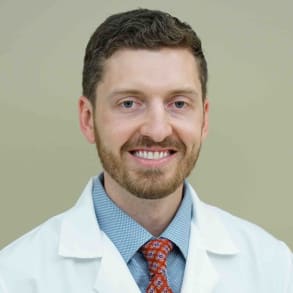Dr. Brett Parker, a fellowship-trained minimally invasive foregut surgeon, discusses his use of the latest technology and techniques for a wide range of GI issues, including bariatric surgery, paraesophageal hernia repairs and GERD treatment.
I'm Brett Parker. I'm an assistant professor of surgery and member of the division of minimally invasive surgery at Johns Hopkins University. I'm a general surgeon who specializes in four gut surgery and primarily based out of Sibley Memorial Hospital. I perform minimally invasive general surgery, including abdominal hernia repairs, weight loss surgery and treat benign gall bladder disease but specifically related to the four gut. My practice consists primarily of primary and re operative Carassava geo hernia repairs and anti reflux surgery for gastroesophageal reflux disease. Inappropriate patients. I'm also trained to offer magnetic sphincter augmentation with the links device, as well as trans Orel Incision List fund application, or tiff. I also specialize in swallowing disorders such as a Coll Asia, as well as other GI motility disorders such as gastro paralysis. Oftentimes, these disease processes do not occur in solidarity, and I think it's important for surgeons to recognize where they overlap so that patients can have all of their problems addressed in the same operation and ensure they have a better quality of life after their surgery. Centralizing patient care to forgot surgeons who perform a large volume of these surgeries will improve patient outcomes, so I'd ask for physicians to refer any patients with medically refractory GERD Ah Paris Ovidio hernia, a GI motility disorder or any other G I complaint that they feel could be benefited by surgery. Unfortunately, many patients don't see surgeons until they developed moderate to severe disease. But here within our division, we offer a multifaceted team for every stage of patient care, including early reflux er's and give them a home for comprehensive treatment. I partner with referring physicians to ensure there is shared decision making between the surgeon, the patient and their primary doctor or gastroenterologist. Oftentimes, there is more than one treatment strategy available, and this multi disciplinary approach ensures that the appropriate intervention is chosen for each patient. After my consultation, the referring physician can expect a summary of our discussion as well as my personal contact information, to maintain an open line of communication for appropriate patient follow up



